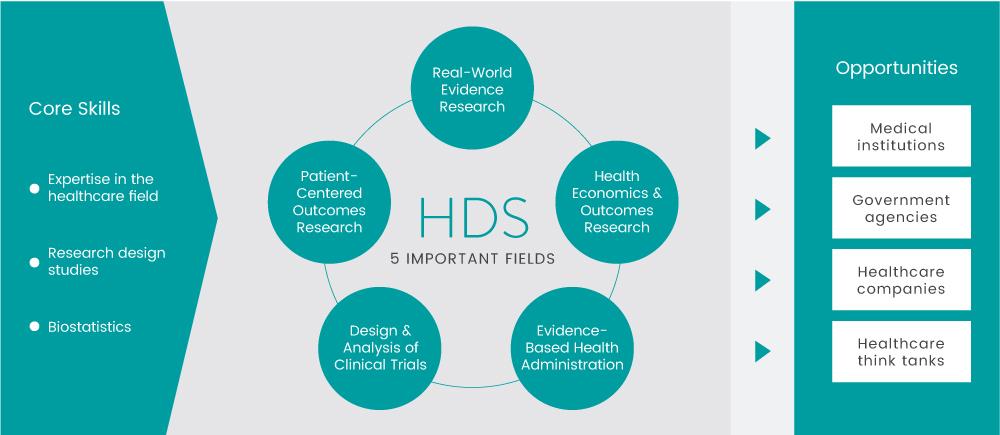Throughout history, up until the present, health issues have always been one of the biggest concerns of humankind. However, with the advancement in technology, countless of new ways are being created to tackle the various health issues around the world – and one of these problem-solving methods involve the usage of data. Advanced data science personnel can now integrate their knowledge in data science with the expertise of those in the medical field.
As the only university in Japan that combines the Faculty of Medicine and the Department of Data Science, our Graduate School of Data Science's Department of Health Data Science provides practical learning and leads the development of data science human resources.
Degree awarded Master of Health Data Science
Duration 2 Years
Medium of instruction Japanese
Study in English Not available
Duration 2 Years
Medium of instruction Japanese
Study in English Not available
Language requirements JLPT N2 or higher, IELTS/TOEFL-ITP/TOEIC IP
Non-degree program Not available
Non-degree program Not available
Course Structure
Master's Program
For the purpose to illustrating the curriculum of this programme, most of the following course names have been roughly translated from Japanese.
| M1 Sem 1 | M1 Sem 2 | M2 Sem | |
|---|---|---|---|
| Biostatistics I (2) | Biostatistics II (2) | Clinical Prediction Rule(2) | Bioinformatics (1) |
| Research Design Studies (2) | Clinical Metrology (2) | Artificial Intelligence (1) | - |
| Research Ethics(1) | Big Data Analysis (1) | Health Technology Assessment (2) | - |
| Health Service Research (2) | Database Development Exercise (2) | Clinical Trial Methodology (1) | - |
| Literature Evaluation Method (1) | Evidence Lightweight Evaluation (2) | - | - |
| - | Health Data Science Research Exercise (4)
Active learning in which specific research topics are proposed, concept design, implementation, and results are interpreted and presented, and faculty and graduate students conduct critical examinations of each other. |
- | |
| Special Research Subjects (4) | Special Research Subjects (4) and Master's Thesis (0) | ||
Completion requirements: 30 credits
- • Special Research and Exercises: 12 credits (4 units for Health Data Science Research (required) and 8 credits for seminars and thesis (required))
- • Common subjects: 18 credits (lectures/exercises (required) 7 credits, lectures/exercises (choice) 11 credits or more)
First year tuition
Admission fee
Yokohama residents and graduates of Yokohama City University: 141,000 JPY
Non-residents: 282,000 JPY
Tuition fee
Annual fee: 535,800 JPY
Other payments
Academic research fee: 2,000 JPY
Sponsorship fee: 30,000 JPY
Japan's first graduate school health data science major
Yokohama City University, the only university in Japan that has both a faculty of medicine and a department of data science, will open the Department of Health Data Science in April 2020 as a graduate school specializing in health data science. This is a curriculum for those who have expertise in the health field related to prevention, medical care, and nursing care to engage in data science research aimed at improving the quality of health services. Specifically, based on basic knowledge of research design and biostatistics, we will develop research focusing on the following five fields. You can complete a hands-on curriculum and earn a Master of Health Data Science.

Learn in a practical format and acquire knowledge and skills that can be used in the field
Extensive mentoring system
The literacy and skills required to study the health area are complex. All students in the Department of Health Data Science can receive individual mentoring guidance from full-time faculty members in the various areas of their department regarding various questions that arise during their research. We provide an extensive system to guide a single student throughout the major.
Practical exercises with all participants
Students will present a research plan based on research questions and hold discussions with other students and faculty members to provide a participatory exercise to learn the process of creating a research plan. Students and faculty members will be able to gain the know-how to overcome difficulties in realizing research by repeating discussions from the same perspective.
A unique curriculum
In addition to being familiar with epidemiology and statistics, the setting of research hypotheses, from setting research hypotheses to interpreting results, we offer a unique curriculum for developing clinical research leaders who can lay down everything from the original writing.

